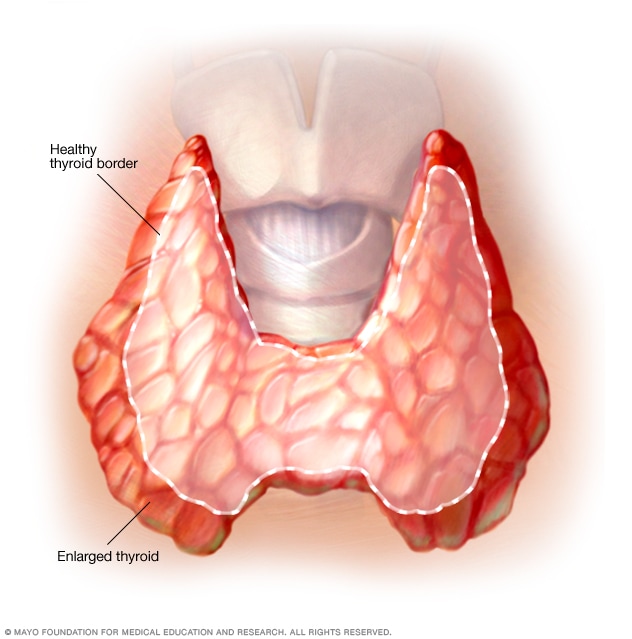The thyroid gland. That little gland on your throat has a
mighty role to play, and with us in Southern Ontario living in the ‘goiter
belt’ and the thyroids’ delicate nature, dysfunctions of the thyroid are a
major concern to Ontarians.
The thyroid gland is your master regulator of growth and
metabolism. It is involved in weight
loss or weight gain, digestion, energy, reflexes, mood – the list goes on, but
these are the big ones. Over 50% of
causes are undiagnosed as the medical world is only now acknowledging that
testing can lead to false negatives and more credence has to be taken on
symptoms than lab numbers.
The Thyroid is more complicated than we give it credit for
TSH (Thyroid stimulating hormone) is the most commonly
tested thyroid hormone. The most active
thyroid hormone is T3 however, which can be free or bound, or can be convert to
rT3 (reverse T3) which is believed to be metabolically inactive. The body needs the necessary micronutrients
such as iodine and selenium to convert T4 to T3 in the first place, so even if
the thyroid is optimally being stimulated
by TSH to produce the T4, it doesn’t necessarily mean the correct
proportions of the other thyroid hormones are being produced.
Sub clinical hypothyroidism
If your thyroid lab numbers are ‘normal’, but your body says
otherwise, you many be suffering from ‘sub clinical hypothyroidism’. The most common presentation is low energy,
cold hands and feet and an inability to lose weight. See below for other signs and symptoms
associated with thyroid issues.
Thyroid and other disease
Its not just about feeling tired and increased weight, but
untreated thyroid can lead to cardiac disease, lupus, reproductive
difficulties, diabetes, arthritis as well as many other health issues which are
associated with a poor functioning thyroid gland. Research has shown that early
thyroid treatment can, in many cases, reduce the incidence or severity of these
high profile diseases.
Adrenal function and thyroid
The adrenal glands are two little glands that sit on top of
your kidneys and help you regulate stress.
The adrenal gland and thyroid work closely together. In fact, the adrenal-hypothalamus-pituitary
loop is the bodies major regulator. When
the body is constantly under stress, this sets off a chronic inflammatory
response in the body causing major dysregulation in numerous organs and glands,
with the thyroid being one of the most affected.
Infection and Autoimmune thyroid disease
Infectious disease is proving to be a culprit of numerous
autoimmune diseases, and Hashimotos thyroiditis is no exception. EBV (Epstein Barr Virus) has been shown to change
the immune status in susceptible individuals.
Other autoimmune conditions EBV is responsible for include systemic lupus erythematosus (SLE),
multiple sclerosis (MS), rheumatoid arthritis (RA), Sjögren’s syndrome, and
autoimmune hepatitis. As a side note, EBV
and Streptococcus (my personal nemesis, learn more about my experience with
PANDAS in my blog) are known co infections, opening the door for even further
auto immune conditions, and / or inflammatory conditions, such as neurological
conditions (depression and anxiety), cancer, heart disease and diabetes.
Why didn’t my doctor say anything before
This is a question we commonly get, and the answer is quite
simple. Conventional medicine doesn’t
have the tools to support a subclinical thyroid imbalance. As a matter of fact, even your Naturopath may
first want to treat something else, such as your adrenal glands, nutritional
status or toxicity level (underlying cause) instead of jumping right at the thyroid.
Thyroid supplementation or medication
There are many choices for thyroid treatment. Supplementing with the cofactors such as
Iodine, selenium, tyrosine are a common first step. Certain herbs such as Bladderwrack have been
shown to support thyroid function, and bio-identical thyroid such as Armour or
Natural thyroid can also be extremely helpful.
BUT, like all disorders, treating the underlying cause such as adrenal
dysfunction or infection is essential.
Cause of thyroid dysregulation
The thyroid is very sensitive to chemicals, inflammation, infection,
toxins and stress. As a matter of fact,
thyroid replacement has been reported as not beneficial during acute
stress. Lacking needed cofactors such as
iodine, selenium, zinc, iron, Vitamin A, and fats are another very common
cause. Finally, genetics plays a leading
role so if you have a close family member with thyroid dysfunction, take extra
care to ensure you don’t follow the same route. (Naturopathic medicine can help
with prevention of turning on those genes).
Medicine has only scratched the surface of this complicated
gland, and patients are often reporting symptoms that respond well to thyroid
treatment that aren’t on the ‘main list’ of commonly associated signs for
thyroid disorder. If you are starting to
feel ‘off’, with low energy, brain fog, digestive issues or difficulty with
temperature regulation, talk to your Naturopath about solutions – don’t wait
until the lab numbers come back positive, so much can be done to prevent full
thyroid disease from developing.
Hypothyroidism symptoms
·
weak slow heart beat
·
muscular weakness and constant fatigue
·
sensitivity to cold
·
thick puffy skin and/or dry skin
·
slowed mental processes and poor memory
·
constipation
·
goitre (increased size of the thyroid)
Hyperthyroidism symptoms
·
rapid forceful heartbeat
·
tremor
·
muscular weakness
·
weight loss in spite of increased appetite
·
restlessness, anxiety and sleeplessness
·
profuse sweating and heat intolerance
·
diarrhea
·
eye changes
·
goitre (increased size of the thyroid)
Ref (A possible link between the
Epstein-Barr virus infection and autoimmune thyroid disorders) (A possible
link between the Epstein-Barr virus infection and autoimmune thyroid
disorders) (Anna
Dittfeld, 2016)



